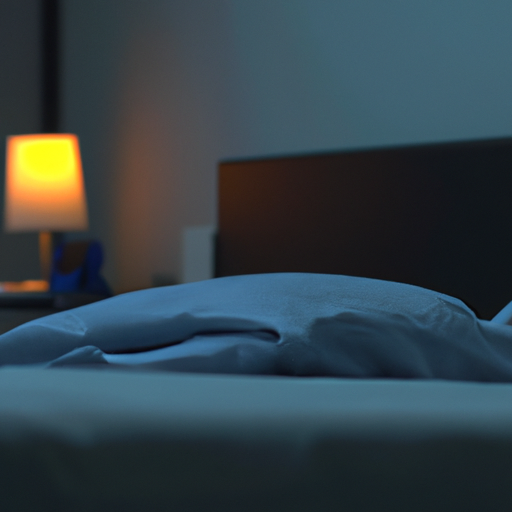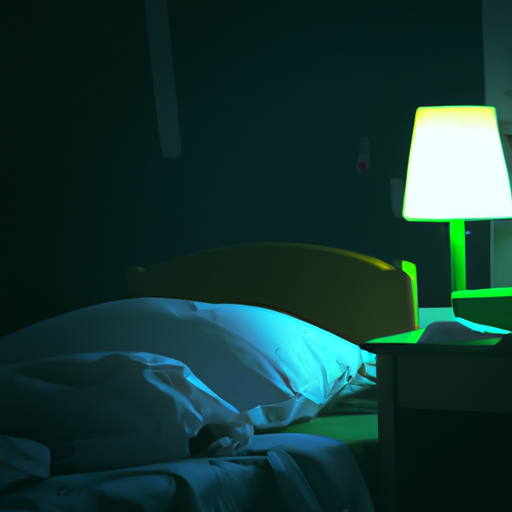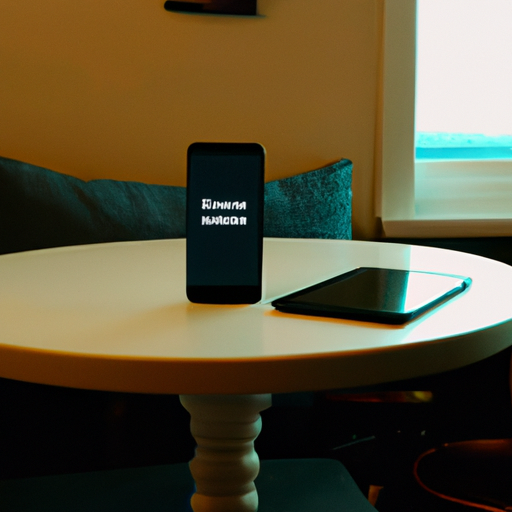The Pros and Cons of Sleeping with the Lights On
Sleeping with lights on can be beneficial in some situations, but it can also have some drawbacks. It is important to consider the pros and cons of this practice before making a decision.
Pros
One of the main advantages of sleeping with the lights on is that it can provide a sense of security. This can be especially helpful for those who are afraid of the dark or who live in an area with a high crime rate. Additionally, having a light on can make it easier to find your way around the room if you need to get up in the middle of the night.
Another benefit of sleeping with the lights on is that it can help to reduce the risk of tripping or falling in the dark. This can be especially helpful for those who are elderly or have vision problems.
Cons
One of the main drawbacks of sleeping with the lights on is that it can disrupt your sleep cycle. Exposure to light can interfere with the production of melatonin, a hormone that helps regulate your sleep-wake cycle. This can lead to difficulty falling asleep and feeling tired during the day.
Additionally, sleeping with the lights on can be a waste of energy. This can be especially true if you forget to turn the lights off when you go to bed.
In conclusion, sleeping with the lights on can have both benefits and drawbacks. It is important to consider the pros and cons before making a decision. If you decide to sleep with the lights on, it is important to make sure that you turn them off when you go to bed to avoid wasting energy.
How Light Exposure Affects Your Sleep Quality
Light exposure is an important factor in determining the quality of your sleep. The amount of light you are exposed to during the day and at night can have a significant impact on your sleep quality.
During the day, exposure to natural light helps to regulate your body’s circadian rhythm, which is the body’s internal clock that helps to regulate your sleep-wake cycle. Exposure to natural light during the day helps to keep your body’s internal clock in sync, which can help you to feel more alert and energized during the day and to fall asleep more easily at night.
At night, exposure to light can disrupt your body’s circadian rhythm and make it more difficult to fall asleep and stay asleep. Exposure to artificial light, such as from electronic devices, can be particularly disruptive to your sleep. The blue light emitted from these devices can suppress the production of melatonin, a hormone that helps to regulate your sleep-wake cycle. This can make it more difficult to fall asleep and stay asleep.
To ensure good sleep quality, it is important to limit your exposure to light at night. Avoid using electronic devices at least an hour before bedtime and keep your bedroom as dark as possible. If you need to use electronic devices at night, consider using blue light-blocking glasses or installing a blue light filter on your device.
In addition to limiting your exposure to light at night, it is also important to get enough exposure to natural light during the day. Make sure to get outside for at least 30 minutes each day and open your curtains or blinds to let in natural light.
By following these tips, you can help to ensure that your exposure to light is balanced and that you are getting the best quality sleep possible.
The Impact of Artificial Light on Your Circadian Rhythm
The circadian rhythm is an internal clock that regulates the body’s daily cycle of physical, mental, and behavioral changes. It is regulated by the body’s exposure to light and dark, and is responsible for regulating sleep-wake cycles, hormone release, body temperature, and other important bodily functions. Artificial light, such as that from light bulbs, can have a significant impact on the body’s circadian rhythm.
Exposure to artificial light can disrupt the body’s natural circadian rhythm, leading to a variety of health issues. Studies have shown that exposure to artificial light at night can suppress the production of melatonin, a hormone that helps regulate sleep. This can lead to difficulty sleeping, fatigue, and other sleep-related issues. Additionally, exposure to artificial light can cause the body to become desynchronized, meaning that the body’s internal clock is out of sync with the external environment. This can lead to a variety of issues, including difficulty concentrating, mood swings, and decreased productivity.
In order to maintain a healthy circadian rhythm, it is important to limit exposure to artificial light at night. This can be done by avoiding the use of electronic devices such as phones and computers at least two hours before bedtime. Additionally, it is important to keep the bedroom dark and free of any artificial light sources. If necessary, use blackout curtains or an eye mask to ensure that the bedroom is completely dark. Finally, it is important to get regular exposure to natural light during the day, as this helps to reset the body’s internal clock.
By following these simple steps, it is possible to maintain a healthy circadian rhythm and reduce the negative impacts of artificial light. Doing so can help to improve sleep quality, reduce fatigue, and improve overall health and wellbeing.
How to Create a Sleep Environment That Promotes Healthy Sleep
Creating a sleep environment that promotes healthy sleep is essential for getting a good night’s rest. Here are some tips to help you create a sleep environment that will help you get the rest you need.
1. Keep the temperature comfortable.
The ideal temperature for sleeping is between 60 and 67 degrees Fahrenheit. Keeping the temperature too hot or too cold can disrupt your sleep.
2. Reduce noise.
Try to keep the noise level in your bedroom as low as possible. If you live in a noisy area, consider using a white noise machine or earplugs to help block out the noise.
3. Block out light.
Make sure your bedroom is dark and free of any light sources. If you need to use a nightlight, use one that is dim and doesn’t emit a lot of light.
4. Use comfortable bedding.
Make sure your bedding is comfortable and supportive. Choose sheets and blankets that are made of natural fibers such as cotton or bamboo.
5. Avoid screens.
Try to avoid using screens such as TVs, computers, and phones in your bedroom. The blue light emitted from these devices can disrupt your sleep.
By following these tips, you can create a sleep environment that will help you get the restful sleep you need.
The Effects of Light Pollution on Your Sleep Quality
Light pollution is a growing problem in many parts of the world. It is defined as the presence of artificial light in the night sky, which can disrupt the natural cycle of day and night. This type of pollution has been linked to a variety of health issues, including sleep disturbances. In this article, we will discuss the effects of light pollution on sleep quality.
Light pollution can interfere with the body’s natural circadian rhythm, which is the internal clock that regulates the body’s sleep-wake cycle. When the body is exposed to artificial light at night, it can disrupt the production of melatonin, a hormone that helps regulate sleep. This can lead to difficulty falling asleep, difficulty staying asleep, and overall poor sleep quality.
Light pollution can also affect the quality of sleep by causing sleep fragmentation. This occurs when the body is exposed to light during the night, which can cause frequent awakenings and difficulty returning to sleep. This can lead to feelings of fatigue and difficulty concentrating during the day.
In addition to disrupting the body’s natural circadian rhythm, light pollution can also cause eye strain. This is because the eyes are not designed to be exposed to bright light at night. This can lead to headaches, dry eyes, and difficulty focusing.
Finally, light pollution can also lead to feelings of anxiety and depression. This is because exposure to artificial light at night can disrupt the body’s natural production of serotonin, a hormone that helps regulate mood.
In conclusion, light pollution can have a significant impact on sleep quality. It can disrupt the body’s natural circadian rhythm, cause sleep fragmentation, lead to eye strain, and even cause feelings of anxiety and depression. Therefore, it is important to limit exposure to artificial light at night in order to ensure a good night’s sleep.




















